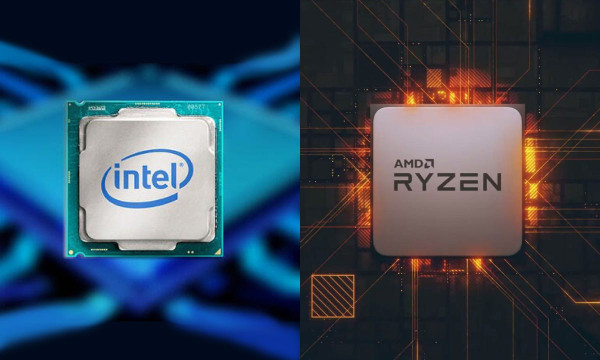At VeloxServ, we offer a wide range of powerful dedicated servers to suit different workloads and business requirements. One of the most common questions we’re asked is: “Should I choose Intel or AMD for my server?”
servers to suit different workloads and business requirements. One of the most common questions we’re asked is: “Should I choose Intel or AMD for my server?”
Both Intel and AMD processors have their strengths, and the best choice largely depends on the specific needs of your application or infrastructure. In this post, we’ll look at the pros and cons of each platform to help you make a more informed decision.
Intel: Proven Performance and Broad Compatibility
Pros of Intel-based Dedicated Servers:
-
Mature ecosystem: Intel CPUs are widely supported by many operating systems, applications, and control panels, making them a safe and familiar choice for most environments.
-
Strong per-core performance: Intel’s CPUs are known for high clock speeds and efficient single-threaded performance, ideal for workloads that depend on fast, individual core performance—such as database servers or game hosting.
-
QuickSync support (on selected CPUs): Useful for video transcoding tasks.
-
Hardware Virtualisation Support: Intel’s VT-x and VT-d are robust and widely supported, which is beneficial for virtualisation-heavy use cases.
Cons:
-
Higher cost per core: Intel processors often carry a premium, especially at higher core counts.
-
Lower core density (in some models): Compared to AMD’s EPYC line, Intel CPUs can offer fewer cores per socket at a similar price point.
AMD: High Core Counts and Great Value
Pros of AMD-based Dedicated Servers:
-
Excellent multi-core performance: AMD’s EPYC and Ryzen CPUs shine in multi-threaded workloads such as containerised environments, virtual machines, or encoding applications.
-
Great price-to-performance ratio: AMD often delivers more cores and threads at a lower cost, offering strong value for parallel workloads.
-
Large cache sizes: Ideal for high-throughput data tasks like analytics and indexing.
-
PCIe 4.0 support (on most EPYC platforms): Enables faster storage and networking options, where supported.
Cons:
-
Some legacy software limitations: While support has vastly improved, a few older applications may still be more optimised for Intel-based systems.
-
Power draw at full load: AMD CPUs can consume more power under heavy multi-threaded tasks—something to consider if energy usage is a concern.
No Matter Your Choice, We've Got You Covered
Whether you opt for Intel or AMD, all our dedicated servers come with:
-
100TB bandwidth included as standard
-
10Gbps network ports across the board for high-speed connectivity
-
Low-latency, UK-based data centres with direct access to major networks & cloud platforms
For customers deploying multiple servers, we also offer bandwidth pooling across systems and custom deals tailored to your requirements—ideal for hosting providers, game server operators, and growing businesses with complex infrastructure needs.
There’s no “one-size-fits-all” when it comes to CPU choice. If your workload relies heavily on single-threaded performance, Intel might be the better fit. If you're aiming for high core counts and value, AMD is an excellent contender.
Still unsure which to go for? We’re always happy to offer advice based on your specific needs. Just drop us a line, and we’ll help you make the best choice for your next server deployment.

